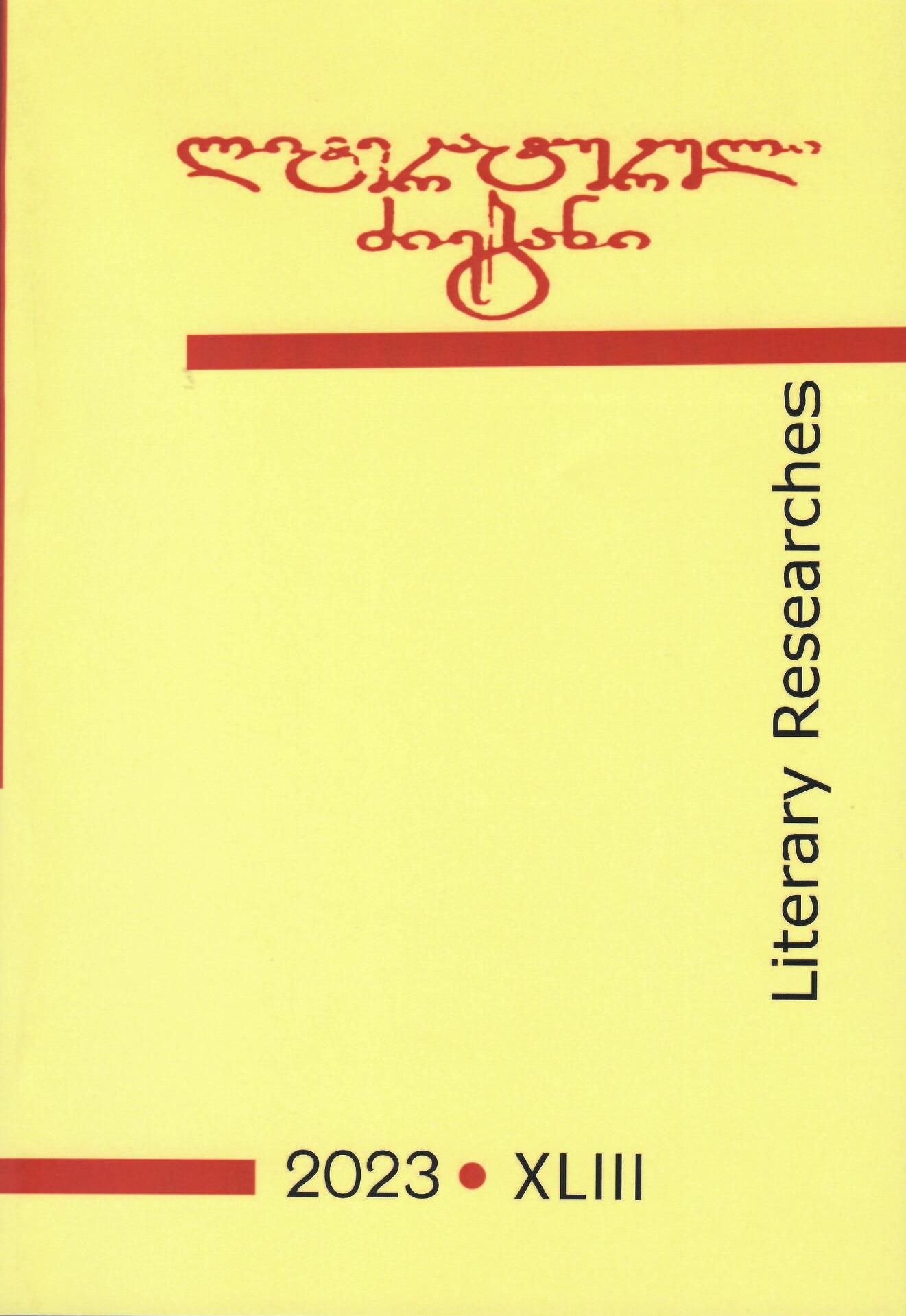გამოქვეყნებული 2023-12-14
საკვანძო სიტყვები
- მწერალი,
- მღვდელი,
- ლიტერატურა,
- სარწმუნოება
როგორ უნდა ციტირება
ანოტაცია
Archpriest Nikoloz Natidze (1853-1921) was known in the Georgian literature of the end of the nineteenth century and the beginning of the twentieth century by his pseudonym: Melania.
Melania’s not numerous writings were noticeably popular among readers during his lifetime and later (although some of his unpublished texts were published later, after the death of the writer).
It is usual for Melania’s writings to shift themes from story to story, however, for the most part, these themes change form or merge with other themes during such a journey.
The story is often built around some impressive symbol, the acquisition or possession of which acquires a defining value for the actor, whose possessions determine the public-social weight of an individual (or so these people themselves think!).
The sequence of events – sometimes throughout the entire text, from beginning to end – is conveyed only in the form of a dialogue or monologue, where the author is generally hidden, which gives dynamism, immediacy, and emotional charge to the text.
The author’s writings are characterized by a broken ending, as if the plot never ends, and this incompleteness or interruption of the story enhances the feeling of their uniqueness. The reader is given an open opportunity, after he has perceived the general structure of the story, to imagine many possibilities for its continuation and development.
The creative loading of language and mythos in Melania’s prose requires special attention, however, unlike Vasyl Barnov and Vazha-Pshavela, they are not given a decisive importance in shaping or presenting the author’s artistic world.
Melania’s work, like the heritage of many other forgotten writers of the past, really needs an academic publication, study, understanding and giving it a proper place.

